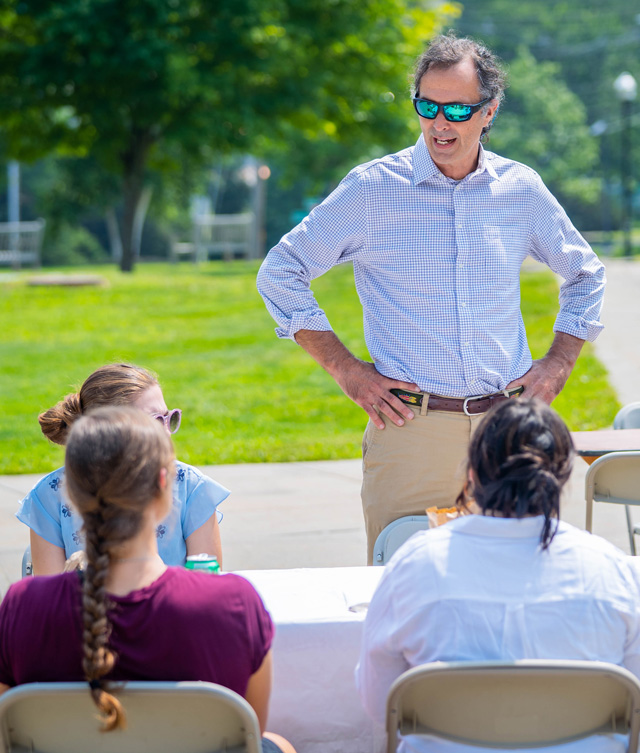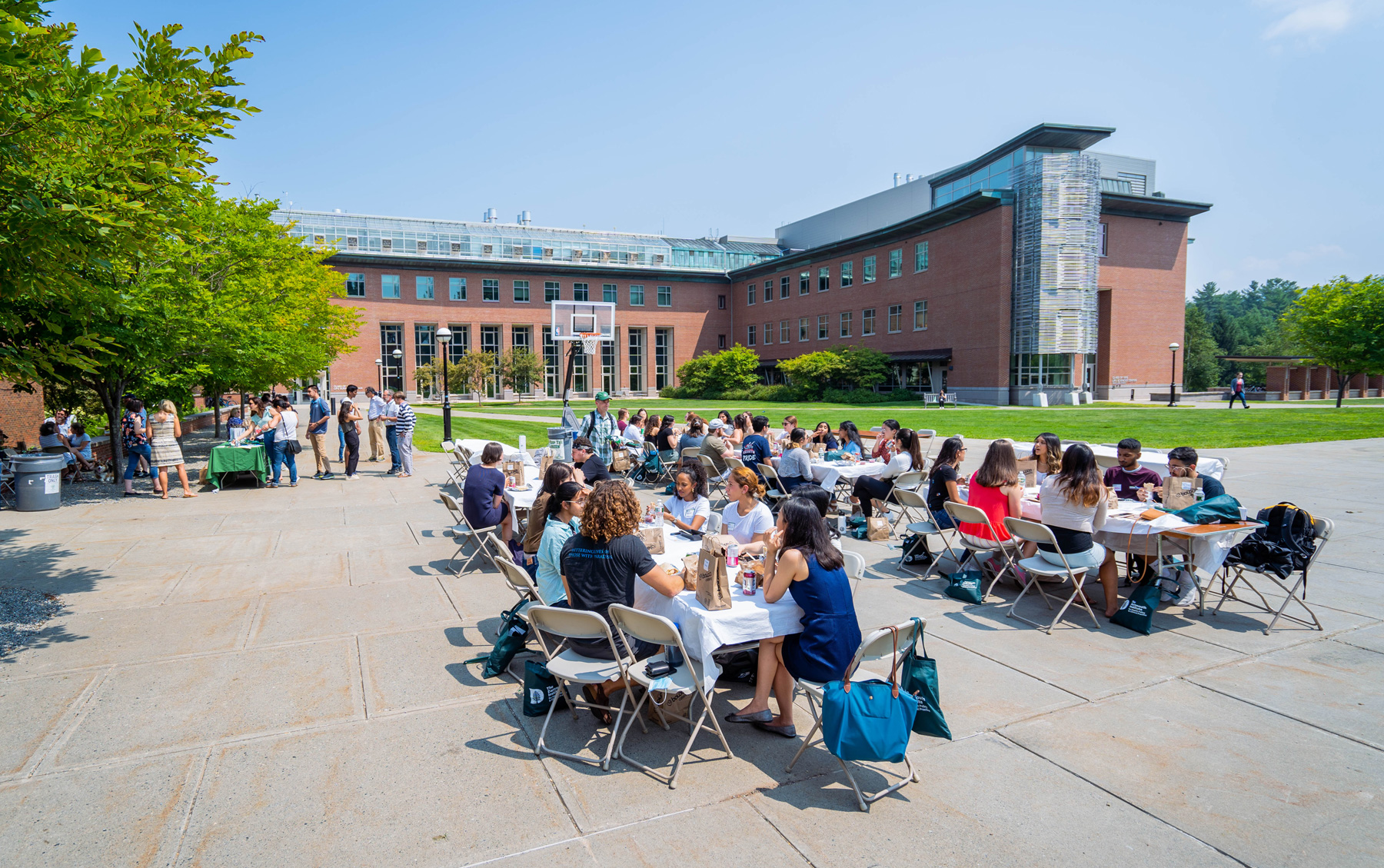Photos by Kurt Wehde

The Dartmouth Institute for Health Policy and Clinical Practice at the Geisel School of Medicine welcomed 113 MPH/MS and hybrid MPH candidates, together the largest class to date, during an interactive virtual orientation.
“The need for public health practitioners, researchers, and teachers has never been more profound. I am grateful to the incoming class for joining us on this journey,” said Amber Barnato, MD, MPH, MS, director of The Dartmouth Institute. “I commend them for their commitment to the field and the resilience they demonstrate by seeking to grow and learn in a time of such global uncertainty.”

Craig Westling, DrPH, MPH, MS, executive director of education, said he was excited to welcome new students to the Dartmouth community and is looking forward to meeting everyone. He then noted the advantage of being part of a small college is that students and faculty are able to develop close relationships.
In closing, he said, “As you begin this journey, I challenge you to gain the knowledge and skills you need to address underlying, fundamental population health issues that lead to indefensible health disparities.
“What is happening in the world right now gives us context for what all of us who are committed to public health are facing in real time. We are still in the grip of a global, infectious disease pandemic that has killed more than 4 million people and has impacted everyone across the globe and COVID-19 has disproportionately impacted minority populations due to factors caused by systemic racism. Make no mistake—racism is a public health issue, and we must work to end it.”
Building on racism as a public health issue, Manish Mishra, MD, MPH, interim director of student affairs and director of professional education, encouraged participants to share their experiences and to think about racism’s effect on themselves, on others, in local and broader communities, and to become change agents for public health. He also discussed the mental health burden of racism.
A strong supporter of community health, Elliott Fisher, MD, MPH a professor of medicine, community and family medicine, and of The Dartmouth Institute for Health Policy and Clinical Practice at Geisel, introduced the concept of public narrative as a tool to effect change through stories of self, of us—our values and choices, and of now—current public health issues. “We make sense of the world—what is right and what is wrong, and what is important through stories,” he said.
Introducing the role of epidemiology in public health, which is about making comparisons, exploring the causes of differences, and evaluating assertions. Fisher said causation is rarely simple and asked the new students to consider why minority populations are more likely to get sick and how, as future public health professionals, they can translate their ideas in to action.

After three days of getting to know each other virtually, the residential MPH students gathered for an outdoor community lunch on the Geisel School of Medicine campus.